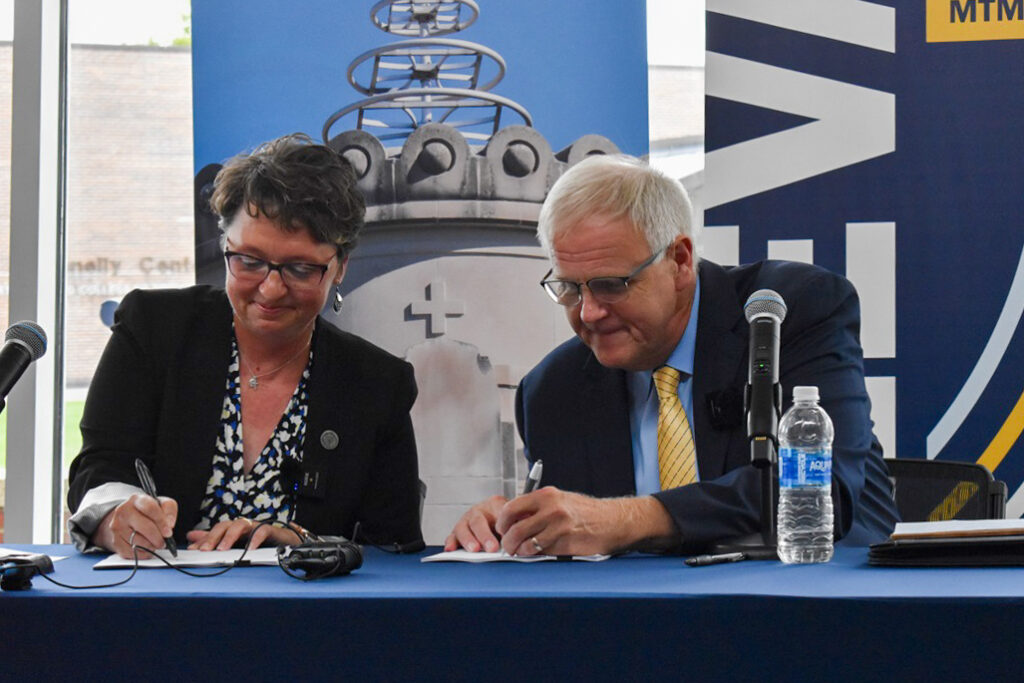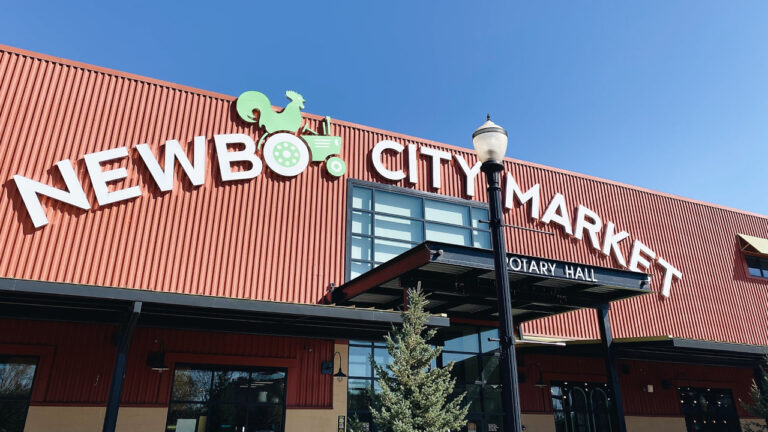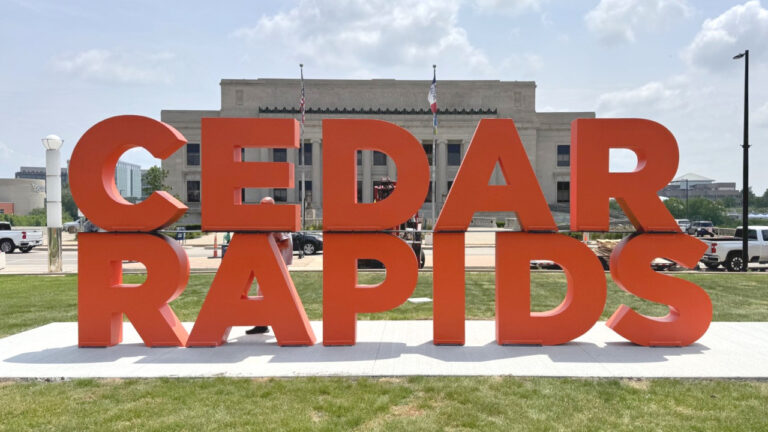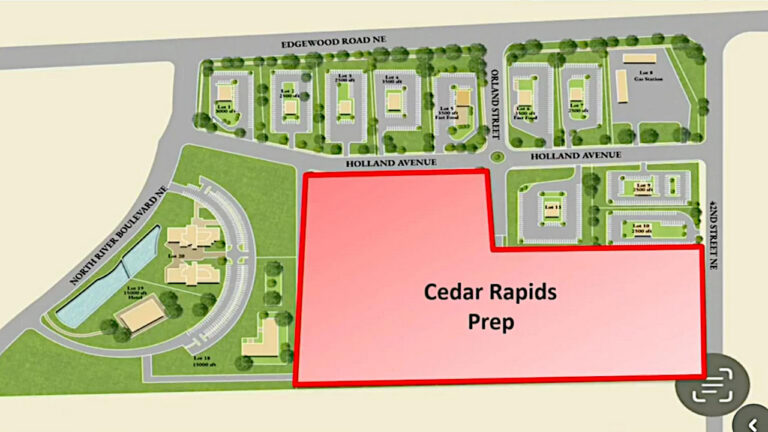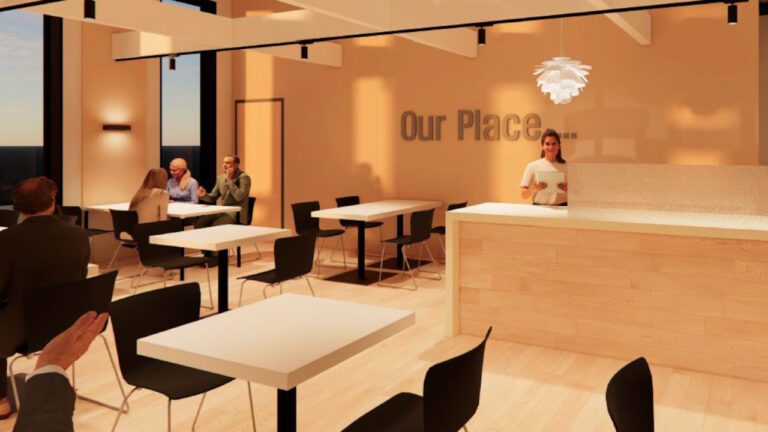The idea of merging two businesses is often based on achieving more growth, reducing costs, increasing market share and diversifying operations. And, ideally the markets the two entities serve don’t overlap too much. This is much the same for merging two institutions of higher education.
That is what was described by Amy Novak, the president of Davenport-based St. Ambrose University, and Todd Olson, the president of Cedar Rapids-based Mount Mercy University, at a May 5, 2025 Cedar Rapids Rotary Club presentation on the pending merger between the two universities.
The combined entity, which will be called St. Ambrose University, is projected to save between $3 million and $5 million annually three to five years after the merger is completed. Much like any corporate merger, there are upfront investments that need to be made to “level up” the two institutions, according to Ms. Novak.
Ms. Novak will serve as president of the merged institution after its pending approval from the U.S. Department of Education, which is anticipated for 2026. Mr. Olson is expected to retire from his president’s role after the merger. His selflessness with this process is nothing short of exemplary.
The two leaders and institutions have been working diligently since the possible merger announcement in 2024.
The next step will see St. Ambrose become the governing institution of Mount Mercy University in June 2025.
We appreciate the thoughtfulness of those two leaders and the board of trustees going into this process, especially as some smaller colleges and universities have struggled to survive in this competitive market with another enrollment cliff in 2025 due to a reduced number of high-school graduates.
According to a paper posted on the Association of Governing Boards of Universities and Colleges (AGB) website, “A total of 92 nonprofit colleges and universities have closed or announced future closures since 2016 through February 2020, according to a running tally maintained by Education Dive.”
According to Ms. Novak, enrollment is projected to buck this trend and rise in the Fall for both institutions with a combined total of 4,100 students and very little overlap of competing student applications, Ms. Novak said. There were only 26 students who applied to both institutions.
While it was never mentioned why St. Ambrose will be the name of the new institution rather than Mount Mercy, St. Ambrose is roughly twice the size of Mount Mercy University and St. Ambrose’s endowment is $247 million, considerably larger than Mount Mercy’s endowment of $43 million.
According to another report on AGB’s website, “A 2019 study found that based on an analysis of eight years of Integrated Postsecondary Education Data System (IPEDS) data for just over 2,300 institutions, nearly 10% face market stresses severe enough to make them candidates for either closing or merging, according to “The College Stress Test: Tracking Institutional Futures Across a Crowded Market,” a new book by academics that offers higher education institutions a way to measure their own health in the context of broader market trends.”
We aren’t saying that either institution was on the verge of closing, but rather we are appreciative of the leaders making tough decisions early instead of being forced into something less desirable at a later date.


